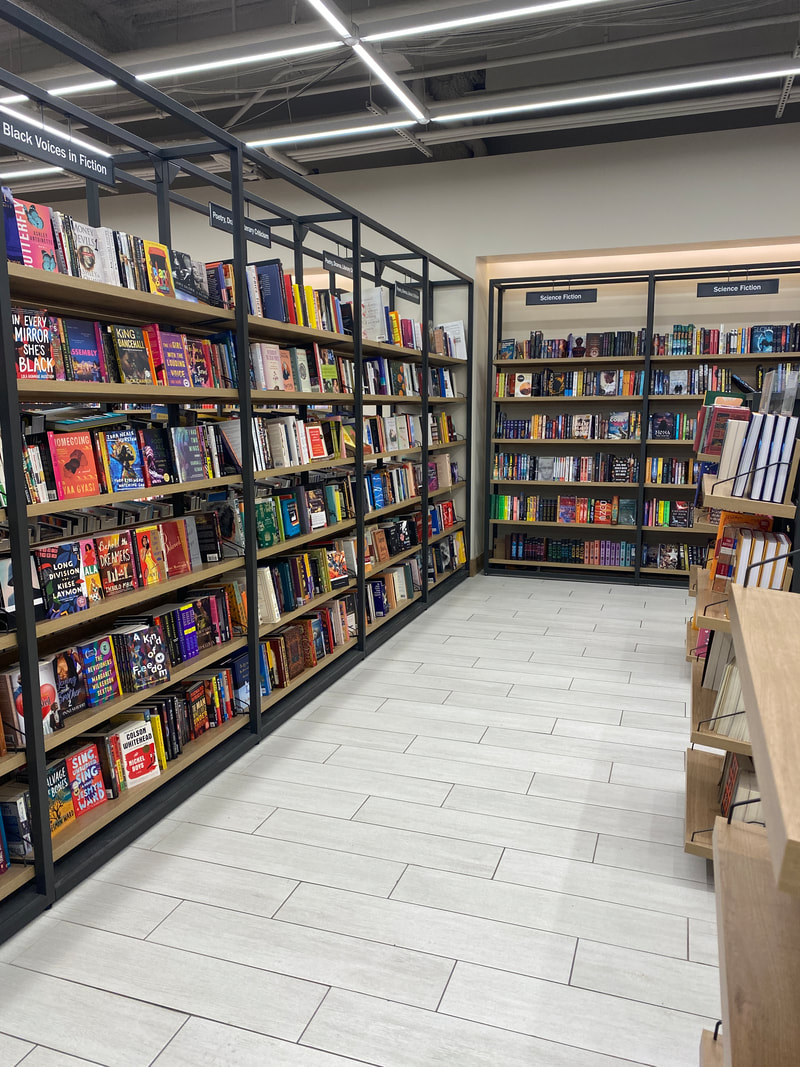This post is a note after reading the article: Neil Gaiman: Why our future depends on libraries, reading and daydreamingIt doesn't matter what people tell you which side they're on, what their reasons are, or whether they're biased or not. It is a kind of declaration of the interests of its members. So I'm going to talk to you about reading. I would like to say that libraries are important. I would suggest that reading fiction, i.e. reading for pleasure, is one of the most important things a person can do. I will make an earnest appeal for people to understand what a library and a librarian are, and to preserve both.
And I'm obviously and incredibly biased. I am a writer and often the author of fiction. I write for children and adults. For about 30 years I have made my living mainly by making up and writing down words. It's my interest to help people read books, read novels, where libraries and librarians exist, and to help foster a love of reading and a place where reading can happen. So I am biased as a writer. However, I am much more biased as a reader. And I'm even more biased as a British citizen. I am giving this talk tonight, sponsored by the Reading Agency. Sponsored by Reading Agency, this charity's mission is to give everyone an equal chance in life by helping people become confident, passionate readers. Supports literacy programs, libraries and individuals, and explicitly promotes reading. Because when we read, everything changes. This is that change, and the act of reading that I want to talk about here tonight. I want to talk about what reading is. why it's good I was once in New York and heard a lecture about the construction of private prisons, a huge and growing industry in the United States. The prison industry needs to plan for future growth. How many cells do you need? How many prisoners will there be 15 years from now? And they found that it was very easy to predict using a very simple algorithm based on the question of what percentage of 10- and 11-year-olds could not read. And it certainly couldn't be read for pleasure. It's not one-to-one. It cannot be said that a literate society is crime-free. However, there is a very real correlation. And I think some of the simplest correlations come from very simple things. People who can read read novels. The novel has two uses. First, it is a gateway drug to reading. The need to know what's going to happen next, the need to turn the page, the need to keep going even when it's hard, because someone is in trouble and needs to know how it all ends... It's a very real need. And it forces you to learn new words, think new thoughts, and move on. To discover that reading itself is enjoyable. Once you learn that, you'll be on your way to being able to read everything. People who cannot understand each other cannot exchange ideas, cannot communicate, and translation programs only go so far. We need our children to climb the reading ladder. Whatever your children love to read, they will develop literacy, step by step. The second thing fiction does is foster empathy. When you watch TV or watch a movie, you are watching what happens to other people. A novel can show you a different world. It can take you to places you've never been. Like those who have eaten fairy berries, after visiting another world, they are never completely satisfied with the world they grew up in. Complaining is a good thing. People who are dissatisfied can correct and improve their world, and they can either stay better or leave. they are different If you are stuck in an impossible situation, in an unpleasant place, with people who hurt you, and someone offers you a temporary escape, why not accept it? And escapism novels are just such novels. It's a novel that opens doors, shows the sunlight outside, gives you a place to go where you have control, and is with people you want to be with (and books are real places, so make no mistake). ); And more importantly, while escaping, books can provide knowledge about the world and your predicament, and provide weapons and armor. There are also real objects you can bring to jail. Skills, knowledge and tools you can use to escape in real life. I don't believe all books will make their way to screens. As Douglas Adams pointed out to me over 20 years before the Kindle, physical books are like sharks. Sharks are old. Even before dinosaurs, there were sharks in the sea. And the reason sharks are still around is because sharks are better at being sharks than anything else. Real books are sturdy, indestructible, water-resistant, solar-powered, and feel great in your hand. It is suitable to be a book, and there will always be a place for a book. Just as libraries already become places of access to eBooks, audiobooks, DVDs, and web content, they belong to libraries. In a world of texts, emails and written information, literacy is more important than ever. We need to read and write, and we need global citizens who can read comfortably, understand what they're reading, understand the nuances, and understand themselves. Albert Einstein was asked how to make our children intelligent. His answer was simple yet wise. “If you want your children to be smart, read them fairy tales. If you want your kids to be smarter, read them more fairy tales.” He understood the value of reading and imagination. I hope we can give our children a world where they can read, read, imagine, and understand books.
0 Comments
Leave a Reply. |
Myungja Anna KohArtist Categories
All
Archives
July 2024
|
Proudly powered by Weebly


 RSS Feed
RSS Feed